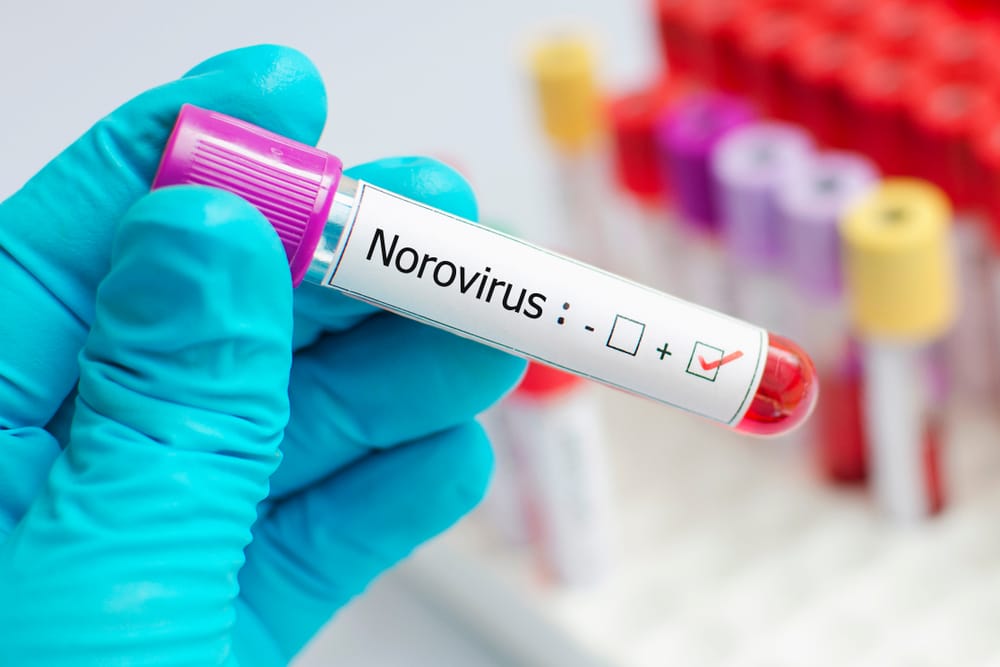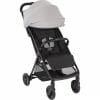Parenting
Important Information On Norovirus For Parents, Especially For Mothers
Nothing can prompt my husband and me to leave our bed and rush to our daughter’s room quicker than the sounds of an upcoming vomiting incident echoing through the monitor. This was our reality just last week on a drowsy Sunday night. We were entirely unprepared for what was about to unfold.
Our daughter continued to vomit a few more times during the night, so we took her to the pediatrician the following day. The doctor diagnosed it as a “stomach virus,” prescribed Zofran (an anti-nausea medication) which greatly alleviated her symptoms, provided us with a prescription for a few more tablets, and bid us farewell. She later developed a fever, experienced further gastrointestinal issues but by Tuesday afternoon, she had mostly returned to her usual self. All seemed well in our home. At least for a brief period.
After lunch, I suddenly spiked a fever of 102.7 and made my initial of numerous trips to the bathroom. Once I discerned the situation—the dreaded norovirus—I swiftly discovered we were not alone. Just as I was beginning to recover three days later, my husband also fell prey to it.
I had observed reports indicating that Norovirus has been spreading rapidly across the nation in recent weeks, resulting in widespread infections and school closures. Even the most recent data from the CDC shows that 12 percent of the latest Norovirus tests submitted to the CDC yielded positive results. The highest percentage of this outbreak is currently concentrated in the northeastern regions. So, what precisely is this nightmarish stomach virus? What measures, if any, can one take to prevent it? And, if you do contract it, what can make it more bearable?
I had a discussion with Dr. Kari Neemann, M.S., a specialist in pediatric infectious diseases at Children’s Hospital & Medical Center in Omaha, to gain a better understanding of this virus, the reasons behind its current prevalence, and to share some effective tips that worked well for my family.
Understanding Norovirus
Norovirus, commonly referred to as the “stomach flu,” is a virus that primarily affects the gastrointestinal system. Dr. Neemann clarified that it is an extremely contagious virus that is believed to cause illness in approximately one out of every 15 U.S. residents annually, resulting in symptoms of vomiting and/or watery diarrhea which typically persist for 24 to 72 hours.
In the United States alone, it leads to “56,000 to 71,000 hospitalizations and 570 to 800 deaths each year, predominantly among young children and the elderly.”
It is most commonly transmitted through the consumption of contaminated foods or drinks, touching surfaces contaminated with the virus, or direct contact with an infected individual. The virus is highly contagious as infected individuals excrete a substantial amount of the virus through their stool and vomit, and only a small quantity is required to cause illness. (Dr. Neemann described this as a low infectious dose).
Following infection, symptoms usually manifest within the next 12-48 hours, potentially causing “outbreaks with high infection rates, particularly among semi-enclosed communities such as childcare facilities, schools, long-term care centers, and, notably, cruise ships.”
Prevention of Norovirus
By adhering to general health recommendations such as regular hand-washing, you can assist in preventing the spread of most bacteria and viruses. However, if someone in your household has already contracted Norovirus, it is likely that you have been exposed as well. Once symptoms emerge, effective management at home and utilization of over-the-counter remedies become crucial, as there is no specific medication or treatment for the virus.
Dr. Neemann emphasized, “Since individuals suffering from Norovirus experience fluid loss (vomiting/diarrhea), they are at risk of dehydration. It is crucial to encourage someone with Norovirus to continue consuming fluids.” In cases of persistent vomiting, it is vital to keep consuming small sips of clear fluids, “such as water or oral rehydration solutions (for instance, Pedialyte and low-sugar sports drinks).”
Regarding Norovirus, Dr. Neemann advised against the use of antidiarrheal medications and suggested that an appropriate diet can be reintroduced once oral rehydration is well-tolerated.
When considering a return to work or school, she recommended keeping your child at home, “until their bowel movements are within normal range—diaper-contained for infants or no accidents for toilet-trained children, and with no more than two bowel movements per day exceeding the child’s typical frequency.”
When to Seek Medical Attention for Norovirus
According to Dr. Neemann, medical attention should be sought for a child if they struggle to keep up with oral rehydration fluids and start showing signs or symptoms of dehydration.
Signs of dehydration in children typically involve reduced urine output (less than one wet diaper or void in six hours), absence of tears when crying, dry mouth, sunken eyes, cool or clammy extremities, increased drowsiness or irritability. These symptoms are similar for adults.
Realizing that I had not urinated for several hours, my hands were cold and sweaty, and I felt lightheaded, I recognized the need for fluid and rehydration support. Consequently, I promptly conveyed these indications via a brief text to my physician assistant friend, who advised me to head to the ER.
How Our Family Coped with the Virus
Thankfully, Norovirus spared us and did not afflict all of us simultaneously. Instead, it singled us out, striking each one of us approximately two and a half days apart over the span of a full week and a half. Given that we reside in a two-bedroom apartment, the situation was challenging. However, we were fortunate to have two bathrooms, designating one for the sick and the other for the healthy.
Gatorade, Ritz crackers, Pedialyte, and laundry sanitizer emerged as the unsung heroes of our Norovirus ordeal. I also developed a newfound fondness for lemon Italian ice. Consuming tiny portions at a time helped me feel moderately human throughout the ordeal, although I don’t think I’ll be able to look at it the same way again.
We focused on resting, sleeping, and purposefully neglecting household chores. (I’m still playing catch-up, to be honest.) The most severe symptoms lasted roughly two days for each of us, followed by additional days of fluctuating conditions.
Among the three of us, I ultimately had to seek emergency medical attention for intravenous fluids to aid in rehydration since I was unable to keep anything down. I felt extremely unwell—perhaps due to a surgery I had undergone five weeks earlier, and my body was still recuperating from it when it had to combat the virus on top of everything. The fluids provided immense relief, and I was thankful to have access to them. During my visit, they conducted tests and analyzed a stool sample to confirm the cause of all my distress. At the very least, it provided me with a sense of validation.
Therefore, if your family encounters the norovirus, remain composed. It’s certainly not a pleasant experience, though fortunately, it passes relatively quickly. Ensure to monitor for any worrisome symptoms and seek medical help should any queries or concerns arise. You’ll soon emerge on the other side of it.

















